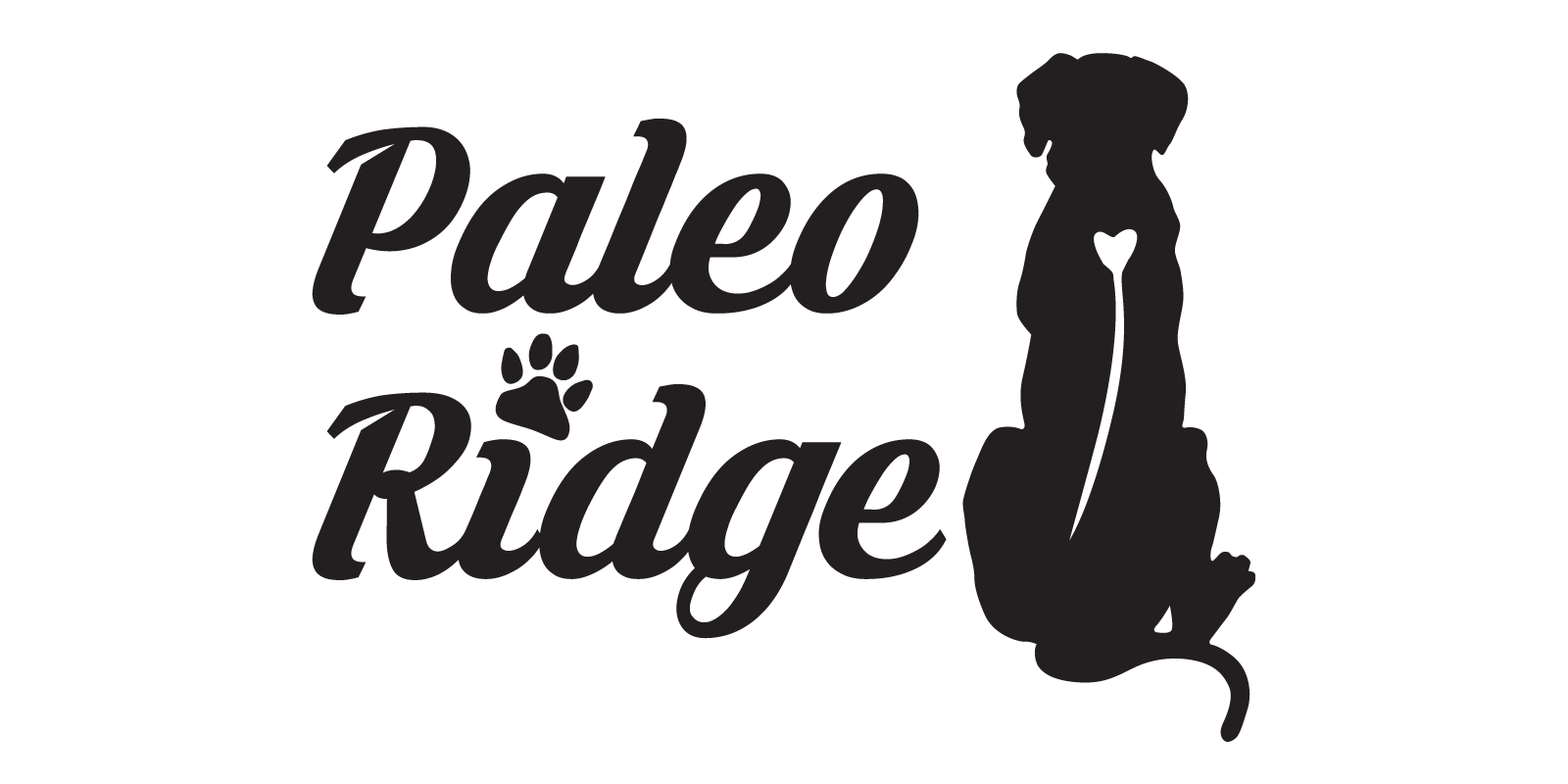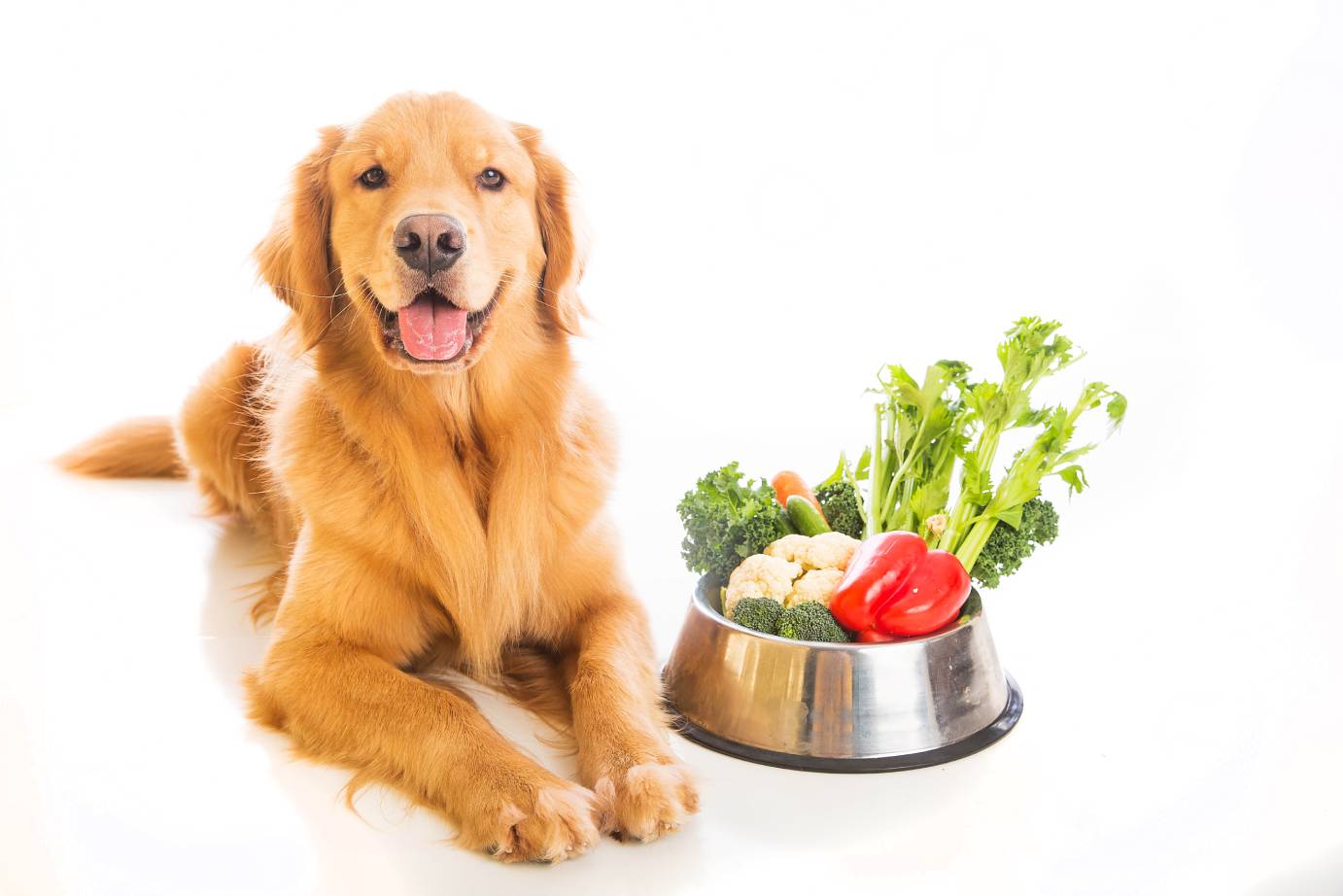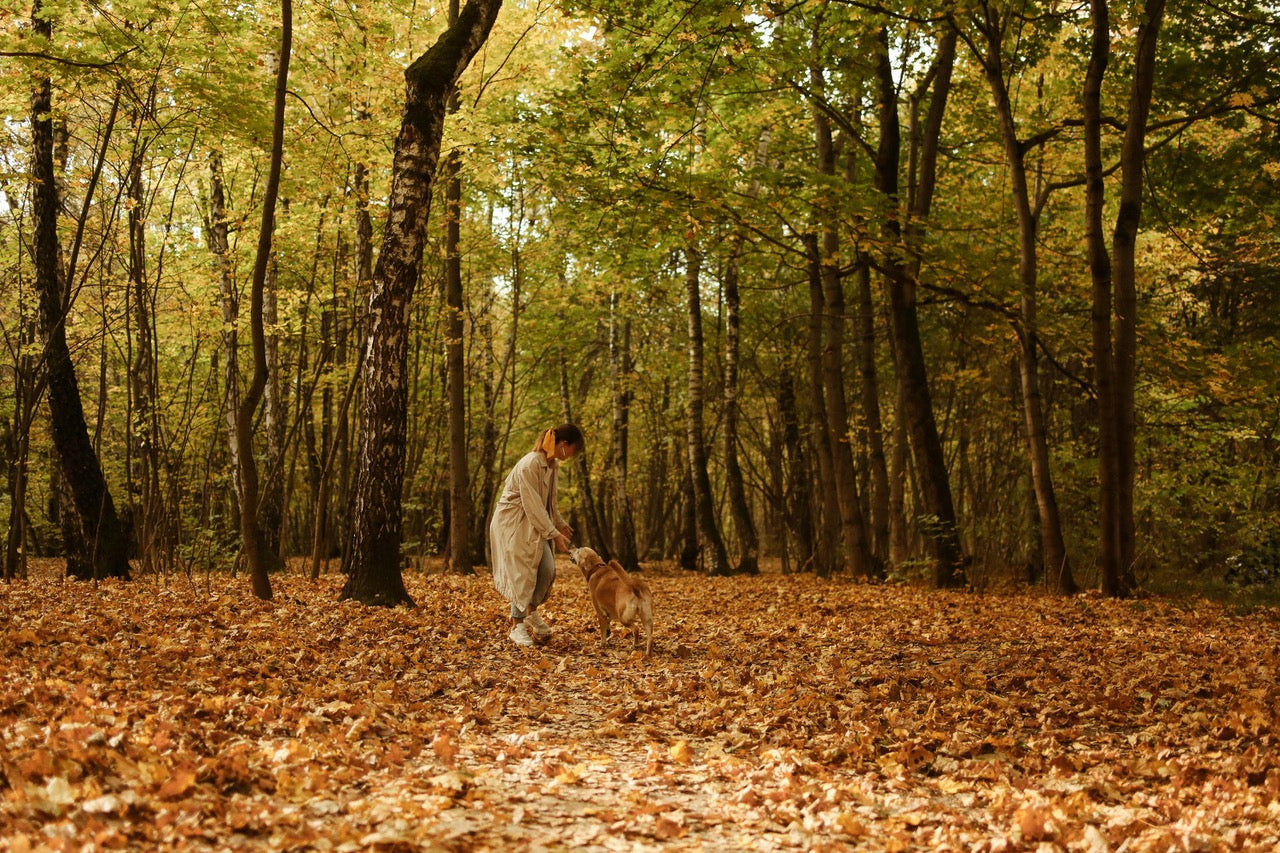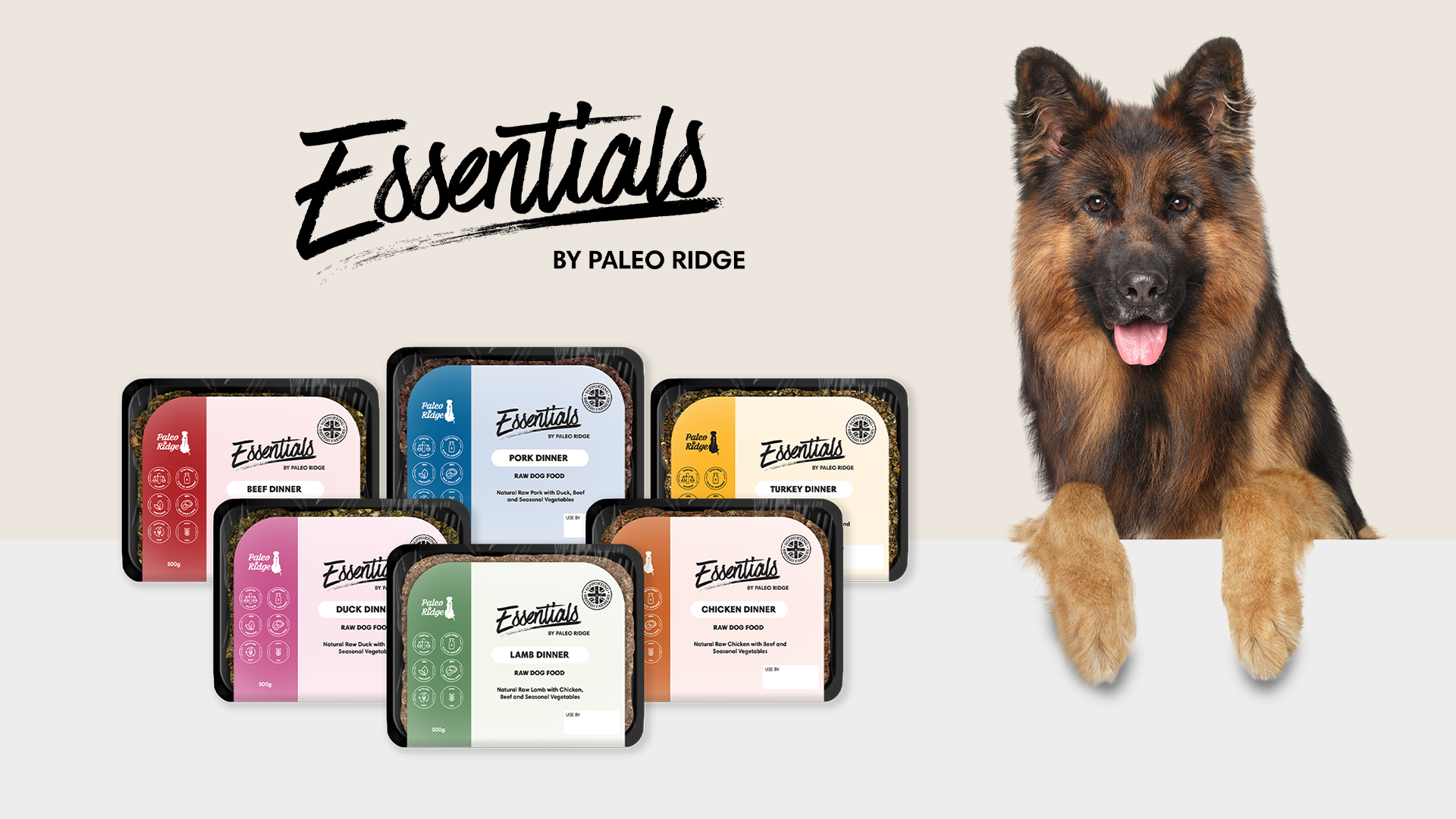There has been a great debate about whether dog's are essential to include in a dogs diet. So, do dog's need fruit and veg to survive?
The short answer is no. They are not strictly essential for a dog's survival, however, they can offer useful nutrients, phytonutrients and fibre when chosen and prepared correctly. Below we'll talk through the biology and the evolution behind that, the strongest research for and against including plants and carbohydrates, plus advice for feeding raw with and without veg!
What are dogs and what did their ancestors eat?
Dogs evolved from wolves and are mostly described as facultative carnivores and are metabolically designed to eat meat but are capable of consuming plant matter.
Wild dogs such as wolves and dingoes would obtain their calories from animal meat, bone and offal and would often consume small amounts of plant matter indirectly, via the stomach of prey. Analyses of wild dog diets and their nutritional profile show very high protein and fat intake with only a fraction of vegetation.
Genetic studies have also shown adaptation, since dogs have been domesticated they have experienced an increase in pancreatic amylase and enzyme activity. This is shown to be an evolutionary change that improves the digestion of starch. It's not to say that dog's are now herbivores, in fact they are far from it, but it does mean many dogs can process starch a lot better than their wolfy ancestors could!
Carbohydrates
Studies show that dogs have no complete dietary requirements for carbohydrates. This is due to the fact that dogs can generate glucose via gluconeogenesis from amino acids and glycerol, so there isn't a defined minimal % carb requirement like there is for say, fatty acids. However, carbs can have some benefits including fibre and weight management.
Benefits of Fruit and Veg
Fruit and vegetables are a fantastic source of dietary fibre, which supports a healthy gut microbiome and can promote regular, comfortable bowel movements.
Packed with natural antioxidants and phytonutrients, fruit and veg can help strengthen the immune system. They work to neutralise harmful free radicals and also offer gentle anti-inflammatory properties!
Even in small amounts, fruit and vegetables are loaded with essential vitamins and minerals. This can give your dog’s daily diet a powerful nutritional lift. For dogs with meat intolerances, where variety may be reduced, fruit and veg can help fill the gap, ensuring they don’t miss out on vital nutrients.
Concerns over Fruit and Veg
Although there are many benefits to feeding plant matter, there are also some concerns and for good reason!
Dogs cannot tolerate as much plant matter as humans. One of the key limitations is their relatively low production of salivary amylase, the enzyme responsible for initiating the breakdown of carbohydrates. As a result, dogs are less efficient at digesting, which may reduce the bioavailability of certain nutrients.
In some cases, dogs may exhibit gastrointestinal sensitivity or intolerance to fruits and vegetables, leading to symptoms such as diarrhoea, gas, or vomiting. For these dogs, plant matter may provide little to no nutritional benefit, and in some cases may even cause discomfort.
Certain vegetables that are high in starches and carbohydrates such as potatoes, sweet potatoes, and other root vegetables may pose additional risks for dogs with metabolic disorders. In particular, for dogs with diabetes mellitus, high-carbohydrate plant foods can exacerbate fluctuations in blood glucose levels and worsen glycemic control.
Preparing Vegetables
It’s important to prepare vegetables in a way that maximises their bioavailability for dogs. Since their digestive systems are not as efficient at breaking down plant cell walls, all plant matter should be finely minced or blended before feeding. This process helps release the nutrients locked within the vegetables, making them easier for your dog to digest and absorb. If you choose to add your own vegetables to your dog’s meals, be sure to chop them into very small pieces or puree them for the best nutritional benefit.
What Should I Feed My Dog?
With raw feeding, variety is key! At Paleo Ridge we provide a variety of different ranges to suit all needs:
Classic
This range contains meals which are purely meat, bone and offal. No fruit and no veg. Ideal for dogs who cannot tolerate plant matter or prefer just the meaty goodness! Some people like to add in their own veg mix to this which is perfectly suitable.
Paleo Plus
Our most premium range made with meat, bone and offal and a 5% mix of superfoods. Dogs who can tolerate a small amount of veg get on well with this product, plus it's excellent for providing an extra immune boost.
Essentials
Our Essentials range contains meat, bone and offal and includes a 20% mix of seasonal vegetables with a dash of extra virgin olive oil. This range is ideal for dogs who love vegetables in their meal!
Some of our customers like to feed a variety of all ranges, it's really up to you and your dog's preferences.
Which Fruits and Vegetables are Safe for Dogs to Eat?
- Apple
- Banana
- Blueberries
- Blackberries
- Strawberries
- Watermelon
- Carrots
- Green beans
- Peas
- Broccoli
- Cauliflower
- Pumpkin
- Butternut Squash
- Cabbage
- Courgette
- Celery
- Kale



